How to Raise Beef Cows for Beginners
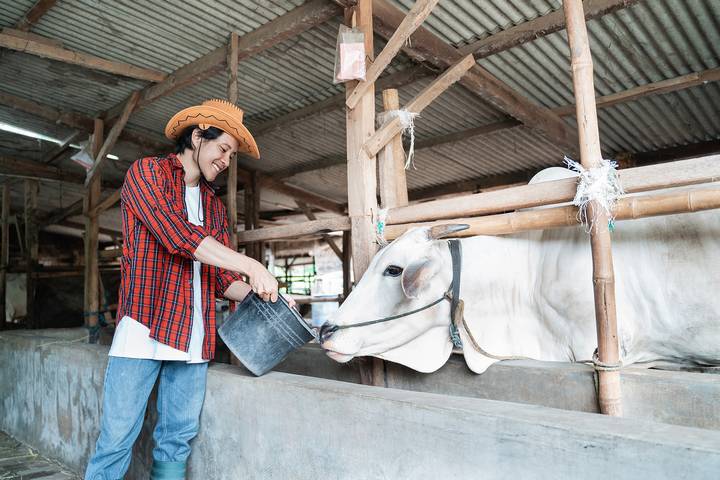
Raising beef cattle can be demanding, especially for beginners, with so many rapid changes and constant challenges in the industry. How to raise cows significantly depends on an individual’s efforts. Nonetheless, this can be the most profitable friendly business idea for farmers if done appropriately.
However, the breed and type of the animals greatly affect the process. For instance, raising beef cows is done differently from dairy ones. To be profitable, you must dive deeper into the beef cow business. Remember that the journey requires a good financial plan, realistic goals, determination, and patience.
Let’s learn how to raise beef cows for amateurs.
Invest in Cattle Waterers
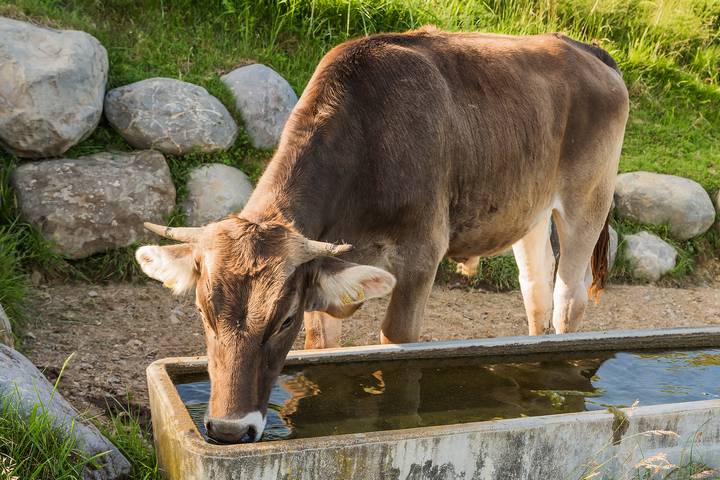
Investing in cattle waterers is one of the most practical tips for raising beef cows. Beef cows are believed to be heavy water drinkers, requiring much of it for their general body activities and health. Therefore, as a beef cattle parent, you must invest in huge and clean cattle waterers to provide an uninterrupted water supply to your cows.
Water is important for beef cows, assisting with various processes such as the absorption of nutrients, digestion, and waste removal. Research shows that beef cows can consume nearly fifty gallons of water daily, depending on the feed, humidity, and temperature. Additionally, ensure that your beef cows’ water is clean to free them from waterborne diseases and other misfortunes.
Go for the Right Breed
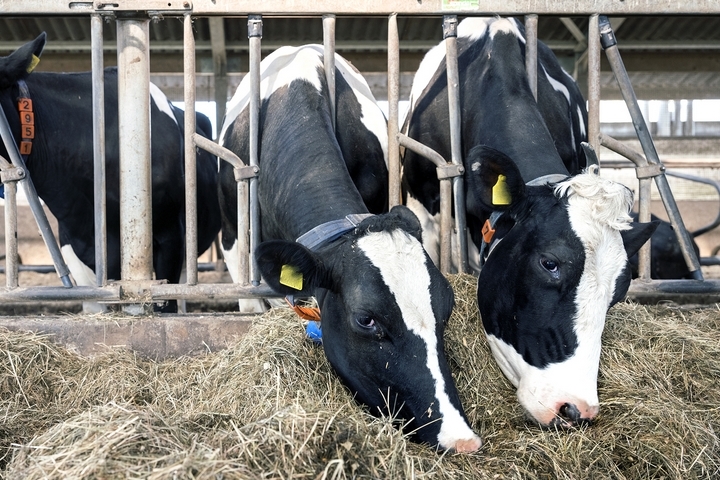
The choice of beef cow breeds you go for significant influences raising cattle. Various beef cattle breeds will perform differently in several climates. For instance, Galloway or Scotch Highland beef cows are believed to do better in harsh cold or winter seasons and areas.
In contrast, Zebu, Sany, and Senepol breed cows will excel in moderate hot climates. Therefore, before diving into beef cow rearing, you must first identify a particular breed and its possibilities to survive in your local climate or where you wish to raise the cows from.
Create a Feeding Program
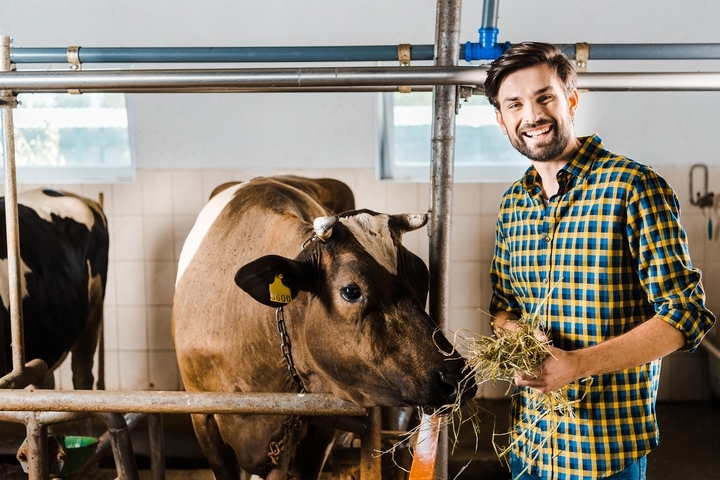
Like other livestock, beef cows need a consistent feeding plan and balanced diet feeds to fulfill their nutritional requirements. Therefore, to start raising beef cattle or just beginning the journey, you must invest in high-quality and nutritious feeds for the cows.
Even better, you can engage an experienced animal nutritionist or vet to develop a long-term feeding plan for your cows. A standard feed for beef cows should comprise treated hay, natural pasture, and some supplements.
Be Ready to Learn
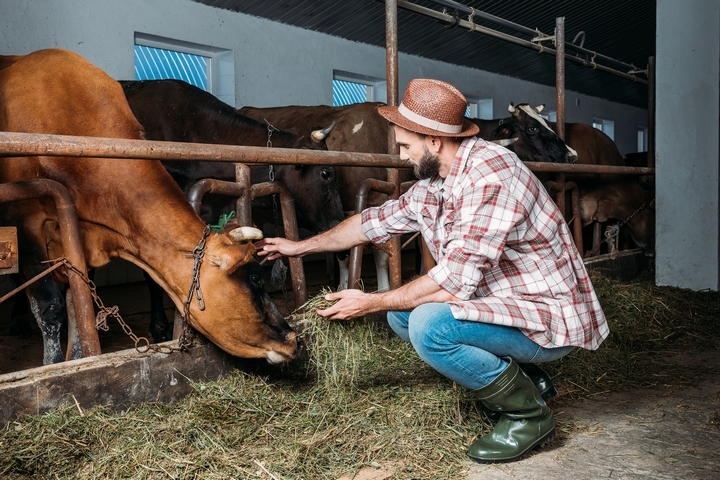
If there’s a thing that never goes out of style with raising beef cows is learning. As highlighted earlier, the industry generally encounters many changes over time, which every farmer should be ready and willing to embrace. Therefore, as a beginner in raising beef cows, your willingness to learn new ideas, findings, tips, and techniques regarding the creatures should remain at its best level.
Additionally, it’s inadvisable to employ your knowledge on other cows, such as dairy cattle on beef ones, as every type has unique features and needs. The governments and livestock programs are constantly changing the rules and regulations regarding beef cattle rearing, which you should constantly be aware of.
Have a Marketing Strategy
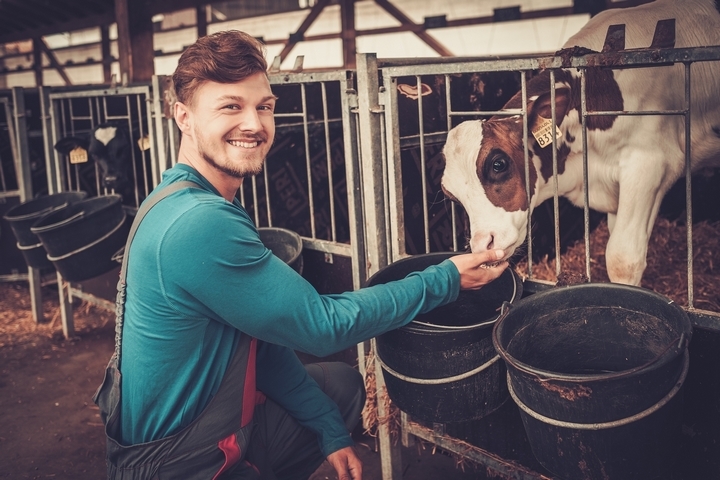
Most farmers usually raise beef cows primarily for business due to the increasing demand for beef meat in the market, not as a hobby or for domestic use, as many would think. As a beginner in the industry, you should develop a reliable marketing strategy before embracing the business idea to evaluate its worth investing in.
First, identify your target market and how to reach your customers when you start the business. Furthermore, it would help if you had great strategies for building a great and timeless brand for your business. Your marketing strategy for the beef cow-raising business should also constitute plans for the uncertain future if you desire to perform excellently in the industry.
Create a Vaccination Program and Adhere to It

Another tip for raising beef cows for beginners is to create a vaccination schedule and strictly adhere to it. Like other domestic animals, beef cows are regularly vaccinated, especially for clostridial and respiratory diseases, to keep them healthy and productive.
That’s why you should have a practical immunization schedule for your beef cows alongside a qualified and experienced veterinary. Above all, study different vaccinations for beef cows, concentrating on their importance and age of administration, just to be in the know.
Create a Financial Plan

A solid financial plan is essential for maximum growth and profitability in every business. Reliable finances can cover different stages of raising beef cows, from catering to operational costs such as vaccinations, insurance, marketing, feeds, water, etc.
Additionally, you require a stable financial background to cater to your cows’ living areas and the machinery required in beef cow rearing. Whenever the size of your herd increases, you should also strive to expand the operating ground, equipment, and other infrastructure, which means more finances and strategic financial goals.
